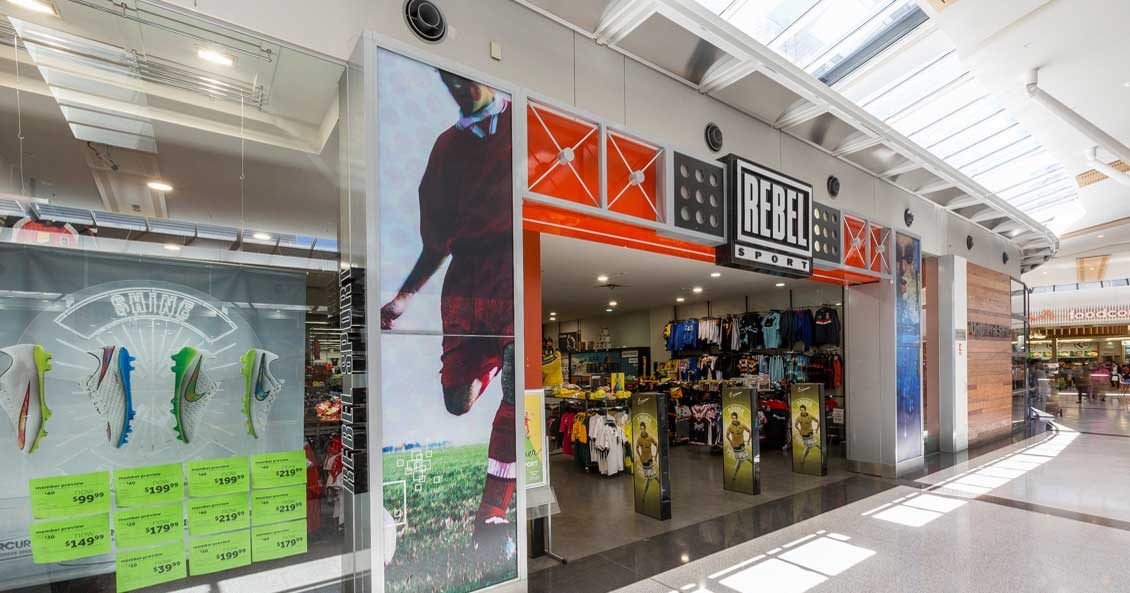This article is from the Australian Property Journal archive
SUPER Retail Group has acquired New Zealand outdoors clothing and suppliers retailer MacPac for $135 million, and will absorb its struggling Rays business into the brand.
It is the second of the listed group’s brands to be consumed by one of its own in the past several months, after its Amart sportsgoods stores were rebranded as Rebel.
The MacPac announcement came with the release of Super Retail Group’s interim results, which saw a 0.7% uplift in normalised net profit to $74.9 million on the previous corresponding period as it continues to navigate transformation.
Sales increased by 2.2% on a like-for-like basis, while EBIT slipped 1.4% to $113.6 million.
MacPac has 54 stores across Australia and New Zealand. The combined business will include small-format stores predominantly MacPac branded, and larger-format stores with a more extensive range of apparel, footwear, equipment and accessories from MacPac as well as a broader range of brands.
Super Retail Group had closed 38 Ray’s Outdoors stores in the 2017 financial year, and 12 were transferred to its boating, camping and fishing wares business BCF. The remaining 15 were converted to the Rays banner.
The group’s leisure retailing EBIT fell 20.4% to $16.4 million. Total sales fell by 3.8% to $299.1 million, and were up 1.6% on a like-for-like basis. Digital sales in the segment increased 122% with its “click and collect” service noted as a key factor. It said its share of customer spending in the outdoor leisure increased by 90 bps on the pcp.
The new Rays format stores posted an EBIT loss of $3.5 million, as metro stores returned much stronger numbers than outer-suburban and regional sites. At the end of the half there were 136 BCF stores and 15 Rays stores.
BCF’s gross margin fell by 40 bps as Super Retail Group upped its investment in cutting prices and promotion, and the cost to relay boating and related goods to stores pushed operating costs 30 bps higher.
Segment EBIT growth was led by auto retailing with 3.9% to $55.7 million, while sales increase by 5.6% to $516.7 million and by 3.5% on a like-for-like basis. The group also owns the Supercheap Auto brand.
Sports retailing posted EBIT growth of 1.6% to $51.7 million. The click and collect service introduced to the sector saw digital sales jump by 174% on the pcp, and the share of customer spending in the sports retailers category was up 50 bps. The group’s eight standalone RebelFit stores will be relocated to existing Rebel stores as a “store within a store, following the successful trial of the format”.
“We recognise that growth in the markets in which we operate is most likely going to come from an increase in sales from digital channels rather than from the traditional physical channels,” Super Retail Group managing director and chief executive officer Peter Birtles said.
“We believe this dynamic will lead to opportunities for Super Retail Group to grow its share of the physical market through delivering a better offer for our customers than our competitors and to substantially increase our share of the digital market as we invest in building our omni-retail capabilities.
“Competing on net price and fulfilment will place some pressure on gross margins and winning on inspiration, experience and solutions will require investment in new omni-retail capabilities as we transform our operating model.
“This will constrain growth in operating margins through this period of transition and capability development.”
Birtles said the group was planning to open around five new stores and close four. The second half has seen like-for-like sales growth of around 4.5% in the auto segment, around 2% in leisure and 1.5% in sports.
Operating cash flow increased over the half by $41.7 million to $293.7 million. Post-tax return on capital was 14.9%, up 170 basis points on the pcp.The interim dividend was 21.5 cents per share.
“The Macpac business has performed extremely well over recent years, yet there remains a significant opportunity to grow the business in the near future through opening new stores and growing its digital and commercial channels,” Birtles said.
“The integration of the business with Rays provides an opportunity to position Macpac as the leading outdoor adventure specialist across Australia and New Zealand providing a much broader range of quality products, information and services than any other retail business.
Amid the broader difficulties facing the retailing environment, the introduction of French sporting good retailer Decathlon down under poses a chief threat to the Rebel and BCF brands, as well as the new version of MacPac.
Australian Property Journal




